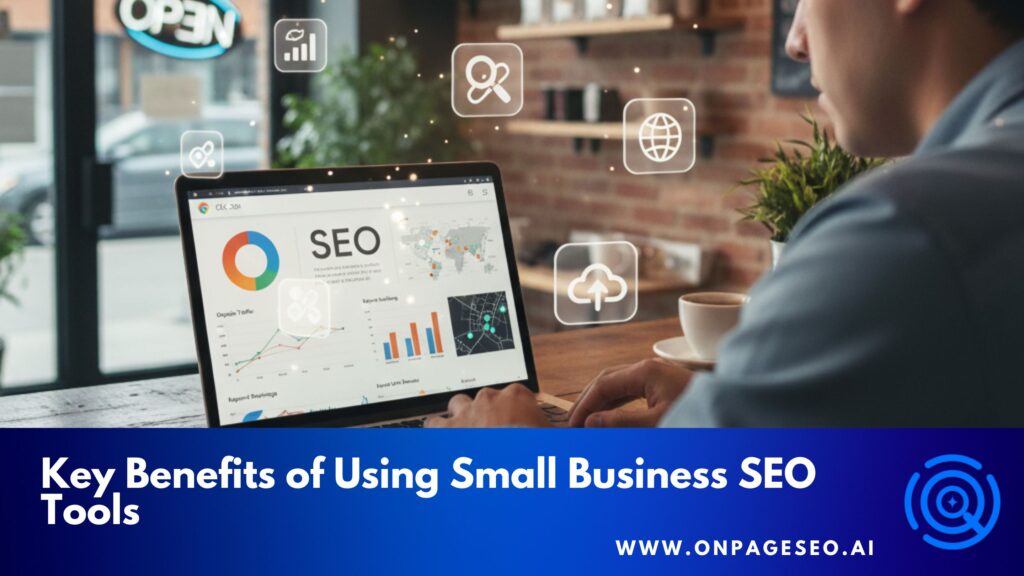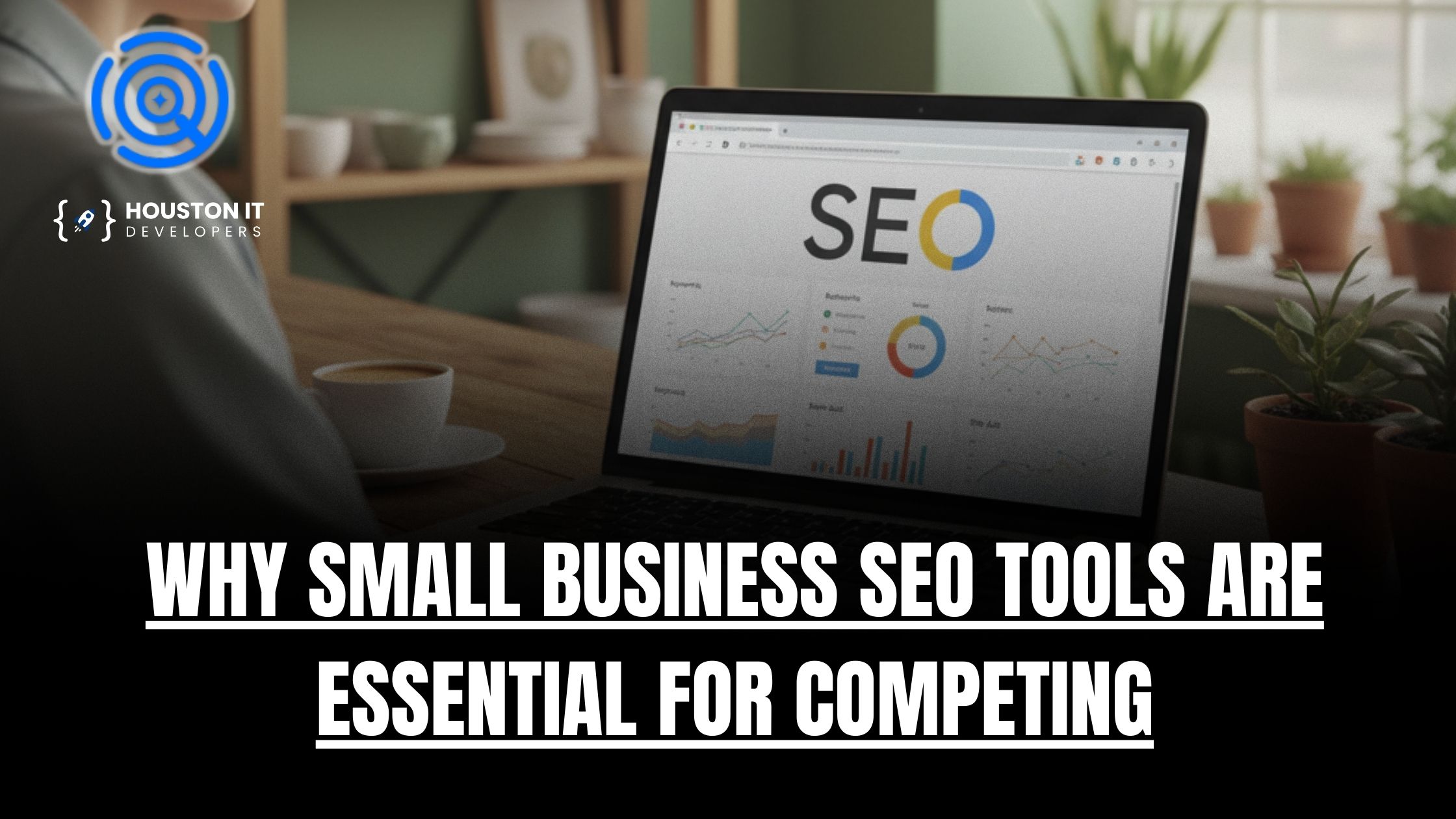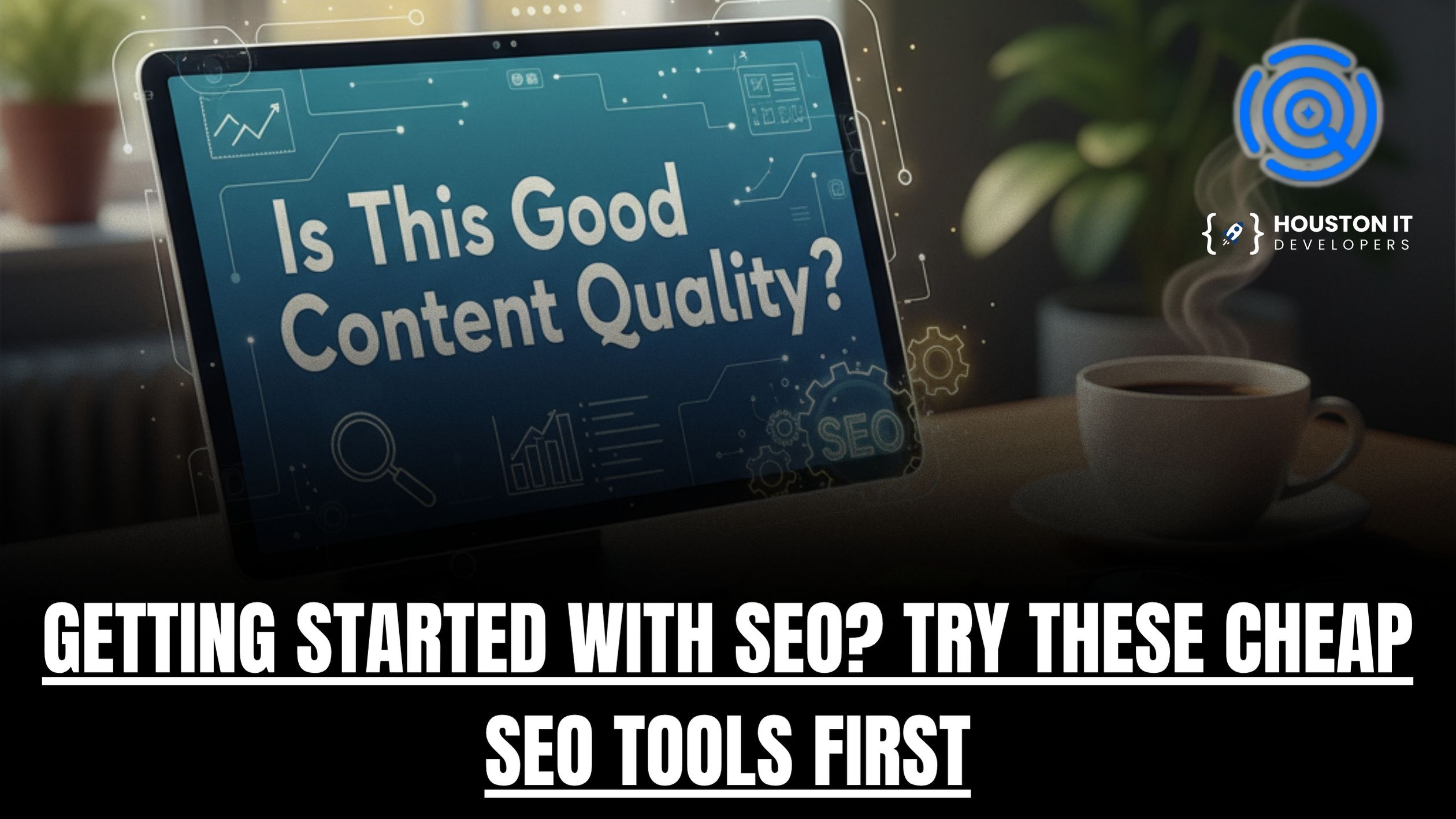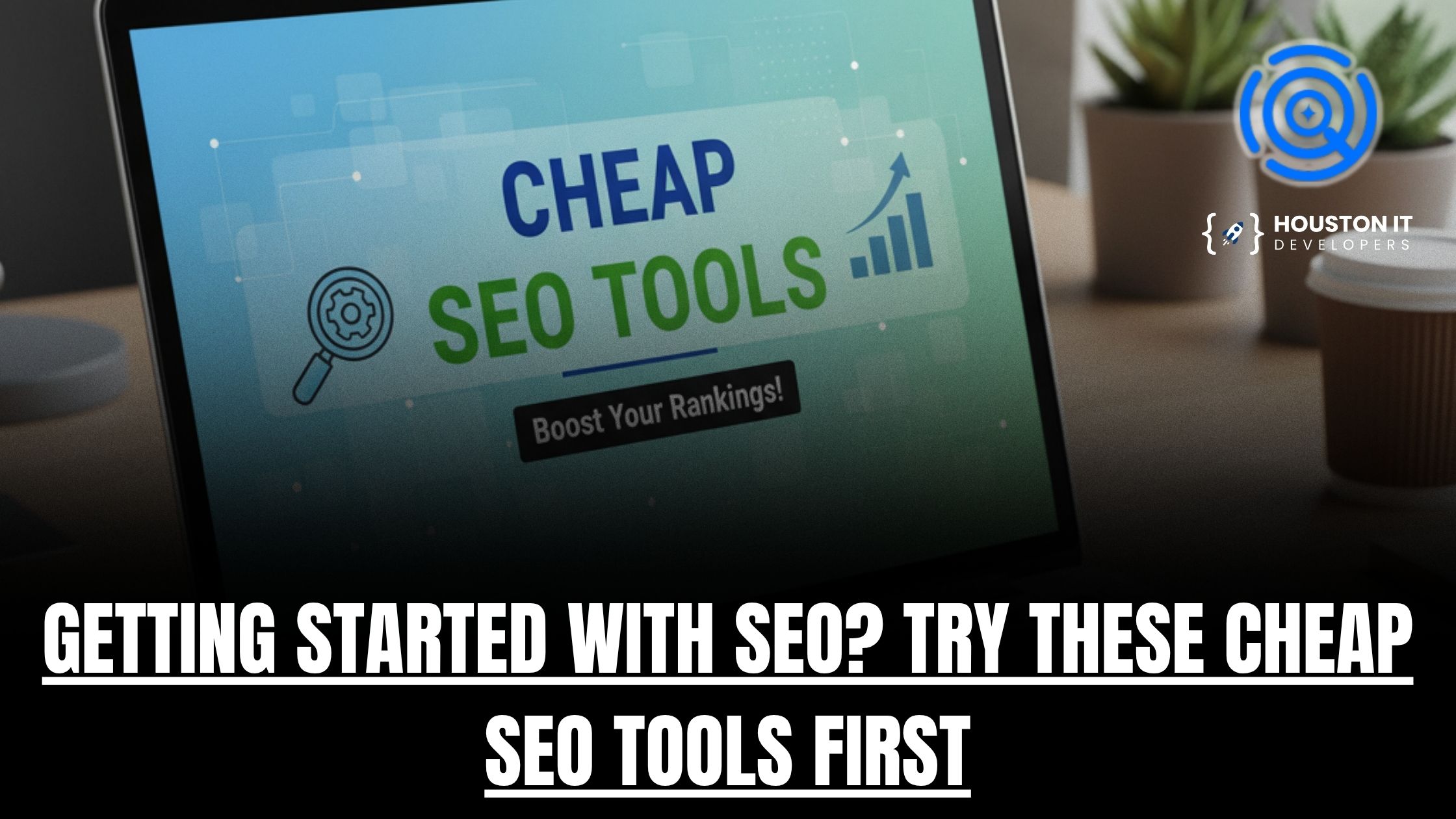Have you ever wondered why some small businesses show up first on Google while others stay hidden? With over 92% of global traffic coming from Google Search, Images, and Maps, visibility is no longer optional. For small companies, this is where small business SEO tools make the difference. They help business owners avoid costly SEO mistakes, optimize content, and compete with bigger brands that dominate search results.
The stakes are even higher for local searches, where 28% lead to a purchase within just 24 hours. Without the best SEO tools for small businesses, owners risk missing out on these high-converting opportunities.
In this blog post, we will explore how SEO fits into internet marketing, the key benefits of using the right tools, and how to choose the best options for your business. The right strategy will help you gain visibility, traffic, and long-term growth.
The Competitive Landscape for Small Businesses
The internet has created incredible opportunities, but it has also levelled the playing field in ways that demand strategy. Small businesses now go head-to-head with established corporations in search results. Without proper search engine optimization, even a well-designed website risks being buried under competitors.
Customers typically click on the first few results they see on Google, which means every business is fighting for those coveted top spots. Using the best SEO tools for small businesses allows owners to monitor competitors, identify market trends, and uncover areas where they can stand out. In short, competition is fierce, but with the right tools, smaller companies can punch above their weight.
The Role of SEO in Internet Marketing
Search engine optimization is more than just inserting keywords into your website. It is the foundation of internet marketing because it connects your business with people who are already looking for what you offer. Unlike paid ads that vanish when you stop spending, SEO provides long-term visibility and builds credibility over time. For small businesses with limited budgets, this makes SEO a cost-effective and sustainable strategy.
Key ways SEO supports internet marketing include:
- Driving qualified organic traffic that converts into leads and sales
- Supporting content marketing by improving reach and relevance
- Enhancing social media campaigns through search visibility
- Increasing brand authority with backlinks and quality content
- Improving customer experience with optimized site performance and usability
When combined with other strategies like social media, email marketing, and local outreach, SEO creates a steady flow of new customers. With the right small business SEO tools, owners can manage keyword research, track backlinks, and perform site audits while avoiding costly SEO mistakes that limit growth. This integrated approach ensures every marketing effort works together for maximum impact.
Key Benefits of Using Small Business SEO Tools

The biggest advantage of small business SEO tools is efficiency. Most small business owners juggle multiple responsibilities, from operations to customer service, leaving little time to manage SEO manually. Tools take the guesswork out of optimization by providing accurate data and actionable insights. Below are the key benefits explained in detail.
Better Keyword Targeting
Finding the right keywords is one of the most critical parts of SEO. Without a clear keyword strategy, businesses risk creating content that never reaches the right audience. Small business SEO tools simplify keyword research by showing which terms potential customers are actually searching for and how competitive those terms are.
Instead of wasting time guessing, owners can focus on high-value keywords with realistic ranking potential. These tools also highlight long-tail phrases that reflect buyer intent, which can significantly increase conversions. With proper keyword targeting, small businesses can compete with larger brands by focusing on niche opportunities that drive qualified traffic.
Competitor Analysis
Small businesses often underestimate how much they can learn from competitors. SEO tools allow owners to track what rivals are ranking for, which backlinks they have earned, and how their content is structured. This insight highlights opportunities to outperform them by filling gaps they have overlooked or improving upon their strategies.
For instance, a competitor might rank well for a generic keyword but miss out on location-specific searches. Small businesses can capitalize on this by tailoring content to their local audience. Competitor analysis also helps businesses set realistic benchmarks, track industry trends, and refine strategies without wasting time or resources.
Improved Content Performance
Not all content drives results, and without proper tracking, it is hard to know what works and what doesn’t. Small business SEO tools provide detailed analytics that reveal which blog posts, product pages, or landing pages are attracting traffic and generating conversions. This helps owners make informed decisions about where to focus their marketing efforts.
If a blog post consistently ranks high, for example, it may be worth expanding or updating it to capture even more search traffic. On the other hand, underperforming pages can be optimized or repurposed to improve ROI. By continuously measuring content performance, businesses can maximize the value of every piece of content they produce.
Local SEO Support
For brick-and-mortar businesses, local search visibility can directly impact foot traffic and sales. Studies show that nearly a third of local searches result in a purchase within 24 hours. Small business SEO tools designed for local optimization make it easier to manage Google Business Profiles, track local keyword rankings, and optimize map listings. They also help ensure consistency across directories, which builds trust with both search engines and customers.
Local SEO features often include review monitoring, citation management, and geographic-specific keyword tracking. By leveraging these tools, small businesses can stand out in local search results, attract nearby customers, and compete more effectively with national chains that lack local focus.
Error Detection
Technical issues on a website can quietly undermine SEO efforts, even if the content is strong. Small business SEO tools perform automated audits that detect problems such as broken links, duplicate content, missing metadata, and slow-loading pages. These errors may seem minor, but they can affect rankings and frustrate users.
For example, a slow-loading mobile page can drive visitors away before they even see your product. By identifying and fixing these issues quickly, businesses can maintain a smooth user experience while protecting their search engine visibility. Regular error detection also ensures that ongoing optimization efforts are built on a solid foundation, preventing wasted time and resources on avoidable mistakes.
Choosing the Right Tools to Maximise Impact
Not every SEO platform is designed with small businesses in mind. While large enterprise tools often come with advanced features, they can be overly complex and cost more than a small business budget allows. The best SEO tools for small businesses strike a balance between affordability, user-friendliness, and essential functionality. The right choice ensures owners can focus on running their businesses while still achieving strong results online.
Steps for Choosing the Right Small Business SEO Tools
- Evaluate Usability – Select tools with a clean, intuitive interface so you and your team can learn quickly without technical expertise.
- Check Core Features – Prioritize essentials like keyword research, rank tracking, backlink analysis, and site audits over fancy extras you may not need.
- Assess Scalability – Choose software that can expand as your marketing needs grow, so you don’t outgrow the tool too soon.
- Review Support and Training – Strong customer support, tutorials, and communities can save valuable time when questions or issues arise.
When these factors are carefully considered, businesses avoid overspending on features they won’t use or making costly SEO mistakes by relying on outdated tools. Instead, they invest in platforms that directly improve visibility, traffic, and conversions. To explore helpful browser-based options, check out this list of top SEO plugin Chrome extensions.
Popular Small Business SEO Tools

| Tool | Best For | Key Features |
| OnPageSEO.ai | On-page SEO optimization | AI-driven audits, keyword placement suggestions, content scoring |
| Google Search Console | Free technical monitoring | Indexing status, error detection, performance reports |
| SEMrush (Lite Plan) | All-in-one SEO management | Keyword research, competitor analysis, backlink tracking |
| Moz Local | Local SEO management | Business listing accuracy, local rank tracking |
| Ubersuggest | Affordable keyword research | Keyword ideas, content suggestions, site audits |
The goal is not to choose the most expensive platform but to find tools that deliver measurable impact for your business. With the right toolkit, small businesses can maximize efficiency, compete more effectively, and steadily grow their online presence.
For a practical guide on improving your site visibility, see how to add keywords to website SEO like a pro.
FAQs
Which SEO tool is best for small businesses?
The best SEO tool for small businesses depends on budget and goals. Many owners find success with all-in-one platforms like SEMrush or Ahrefs because they provide keyword research, backlink analysis, and site audits in one place. For those who want something simpler and more affordable, tools like Ubersuggest or OnPageSEO.ai are excellent starting points. Google Search Console is also a must-have since it is free and gives direct insights from Google about how your site is performing.
Can ChatGPT do SEO?
ChatGPT itself is not an SEO tool, but it can support SEO strategies. For example, it can generate optimized blog outlines, suggest keywords, create engaging content, or explain complex SEO concepts in simple terms. However, it does not replace technical SEO tools that provide data on rankings, backlinks, and site performance. The best approach is to use ChatGPT for content support alongside specialized small business SEO tools for analytics and technical work.
Which small SEO tool is best for beginners?
Beginners often do well with tools that have clean interfaces and focus on core features rather than overwhelming users with too much data. OnPageSEO.ai is designed with ease of use in mind and offers guided recommendations for on-page optimization. Ubersuggest is another beginner-friendly option that provides keyword ideas and site audits at an affordable price. Pairing these tools with Google Search Console gives small businesses a strong foundation without requiring advanced technical knowledge.
Final Thoughts on Why Small Business SEO Tools Are Essential for Competing
Competing online as a small business is not easy, but the right tools can level the playing field. From keyword targeting and competitor analysis to local SEO support and error detection, small business SEO tools simplify the complex process of optimization and deliver measurable results. The key is choosing platforms that fit your budget, offer essential features, and grow with your business.
Now is the time to take action. Do not let competitors with bigger budgets dominate search results while you miss valuable opportunities. Start optimizing smarter with tools designed for small businesses.
OnPageSEO.ai gives you AI-powered recommendations, on-page audits, and content optimization features tailored for non-experts. Sign up today and install the OnPageSEO.ai Chrome extension to bring real-time SEO insights directly into your browser. It is the easiest way to improve your rankings and grow your online visibility.



